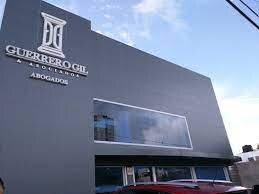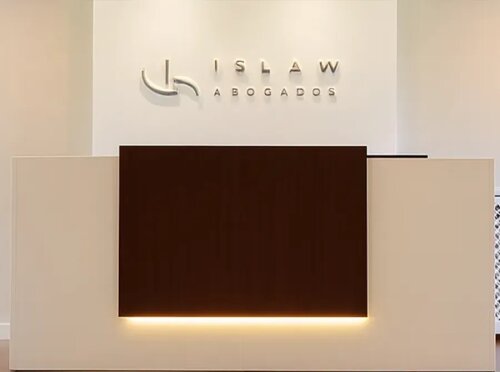Best Corporate & Commercial Lawyers in Dominican Republic
Share your needs with us, get contacted by law firms.
Free. Takes 2 min.
Or refine your search by selecting a city:
List of the best lawyers in Dominican Republic
About Corporate & Commercial Law in Dominican Republic
Corporate & Commercial law in the Dominican Republic covers the range of legal matters involving the establishment, regulation, and operation of businesses. This area of law is crucial for both local and foreign investors, as it addresses the rules, procedures, and rights associated with creating companies, managing contracts, navigating mergers and acquisitions, and resolving commercial disputes. The Dominican Republic’s legal framework is based mainly on Civil Law, influenced by the French Napoleonic Code, and is supplemented by modern commercial regulations to foster business development and protect commercial relationships.
Why You May Need a Lawyer
Seeking legal counsel is highly recommended for anyone engaging in business activities within the Dominican Republic. Several situations commonly require the expertise of a corporate and commercial lawyer:
- Forming a new company or establishing a branch of a foreign entity
- Drafting or reviewing partnership agreements, shareholder agreements, and bylaws
- Restructuring or merging companies
- Buying or selling businesses and commercial assets
- Negotiating and drafting commercial contracts
- Ensuring compliance with local business standards and regulatory frameworks
- Handling labor matters related to business operations
- Resolving shareholder or partnership disputes
- Protecting intellectual property such as trademarks and patents
- Navigating foreign investment regulations and incentives
Local Laws Overview
The Dominican Republic enforces several key statutes relevant to corporate and commercial law, the most important being the General Law of Commercial Companies and Limited Liability Individual Companies (Law 479-08) which governs the formation, management, and dissolution of companies. Some of the main points include:
- Four main types of business entities: Limited Liability Company (SRL), Corporation (SA), Simplified Corporation (SAS), and Individual Limited Liability Company (EIRL)
- Obligation to register companies with the Chamber of Commerce and obtain a National Taxpayer Registry (RNC)
- Regulations on foreign investment, with most sectors open to foreign participation, though with some restrictions for specific industries (e.g., defense, public health)
- Requirements for annual shareholder meetings, accounting, and tax submissions
- Labor laws intending to protect workers’ rights and setting clear employer obligations
- Legal frameworks for commercial contracts and dispute resolution, including access to local courts and arbitration alternatives
Understanding these local laws is crucial to ensure compliance, avoid liability, and operate efficiently within the Dominican market.
Frequently Asked Questions
What are the main types of business entities in the Dominican Republic?
The most common types are Limited Liability Company (SRL), Corporation (SA), Simplified Corporation (SAS), and Individual Limited Liability Company (EIRL). Each has distinct requirements for capital, shareholder structure, and management.
Do I need to be a Dominican citizen to open a business?
No, foreign nationals can own and operate businesses in the Dominican Republic. There are no general nationality requirements for shareholders or directors, though some regulated sectors may have restrictions.
How long does it take to register a company?
The process typically takes from one to three weeks, provided all documentation is correct and completed. Timelines may vary depending on the business type and complexity.
Is there a minimum capital requirement to start a company?
Minimum capital requirements depend on the business type. For example, an SRL requires DOP 100,000 as minimum share capital, while requirements vary for other structures like SAS or SA.
Are there any foreign investment restrictions?
Most industries are open to foreign investors, but certain sectors such as defense, security, and select public services may restrict or limit foreign participation.
What taxes do Dominican companies have to pay?
Businesses are subject to corporate income tax, value added tax (VAT or ITBIS), payroll taxes, and municipal taxes, among others. Rates and obligations depend on the nature and size of the business.
How are commercial disputes resolved?
Disputes may be resolved through the Dominican court system or through alternative dispute mechanisms such as arbitration. Contracts often specify the preferred route for resolving conflicts.
What labor laws should companies be aware of?
Dominican labor law heavily regulates contracts, employee termination, benefits, working hours, and occupational health. Employers must comply with detailed requirements to avoid penalties.
How can intellectual property be protected?
Trademarks, patents, and copyrights must be registered with the National Office of Industrial Property (ONAPI) or relevant government departments. Registration grants legal protection within the country.
Is annual reporting mandatory for companies?
Yes, all registered companies are required to maintain accounting records and submit annual financial statements and tax filings to the authorities.
Additional Resources
If you need further information or assistance, the following resources and bodies specialize in corporate and commercial matters in the Dominican Republic:
- Chamber of Commerce and Production of Santo Domingo - Handles company registration and provides guidance to new businesses.
- National Office of Industrial Property (ONAPI) - Oversees the registration and protection of intellectual property.
- General Directorate of Internal Taxes (DGII) - Responsible for tax registrations, filings, and compliance for businesses.
- Ministry of Industry, Commerce, and MIPYMES - Provides information on regulations, incentives, and business programs.
- Bar Association of the Dominican Republic - Can assist in locating experienced corporate and commercial lawyers.
Next Steps
If you are considering starting, investing in, or expanding a business in the Dominican Republic, it is highly advisable to consult with a qualified legal professional specializing in corporate and commercial law. Here are the steps to take:
- Identify the type of legal assistance you need, such as company formation, contract drafting, or compliance advice.
- Gather all relevant documents related to your business activities, including identification, business plan, and any agreements.
- Contact a reputable law firm or lawyer specializing in corporate and commercial law with experience in your industry.
- Discuss your objectives and request a clear outline of legal procedures, expected timelines, and associated costs.
- Follow the advice and comply with all local legal and administrative requirements to ensure smooth operations.
Taking these steps will help you navigate the Dominican corporate and commercial landscape with confidence and efficiency.
Lawzana helps you find the best lawyers and law firms in Dominican Republic through a curated and pre-screened list of qualified legal professionals. Our platform offers rankings and detailed profiles of attorneys and law firms, allowing you to compare based on practice areas, including Corporate & Commercial, experience, and client feedback.
Each profile includes a description of the firm's areas of practice, client reviews, team members and partners, year of establishment, spoken languages, office locations, contact information, social media presence, and any published articles or resources. Most firms on our platform speak English and are experienced in both local and international legal matters.
Get a quote from top-rated law firms in Dominican Republic — quickly, securely, and without unnecessary hassle.
Disclaimer:
The information provided on this page is for general informational purposes only and does not constitute legal advice. While we strive to ensure the accuracy and relevance of the content, legal information may change over time, and interpretations of the law can vary. You should always consult with a qualified legal professional for advice specific to your situation.
We disclaim all liability for actions taken or not taken based on the content of this page. If you believe any information is incorrect or outdated, please contact us, and we will review and update it where appropriate.
Browse corporate & commercial law firms by service in Dominican Republic
Dominican Republic Attorneys in related practice areas.
Browse corporate & commercial law firms by city in Dominican Republic
Refine your search by selecting a city.
















